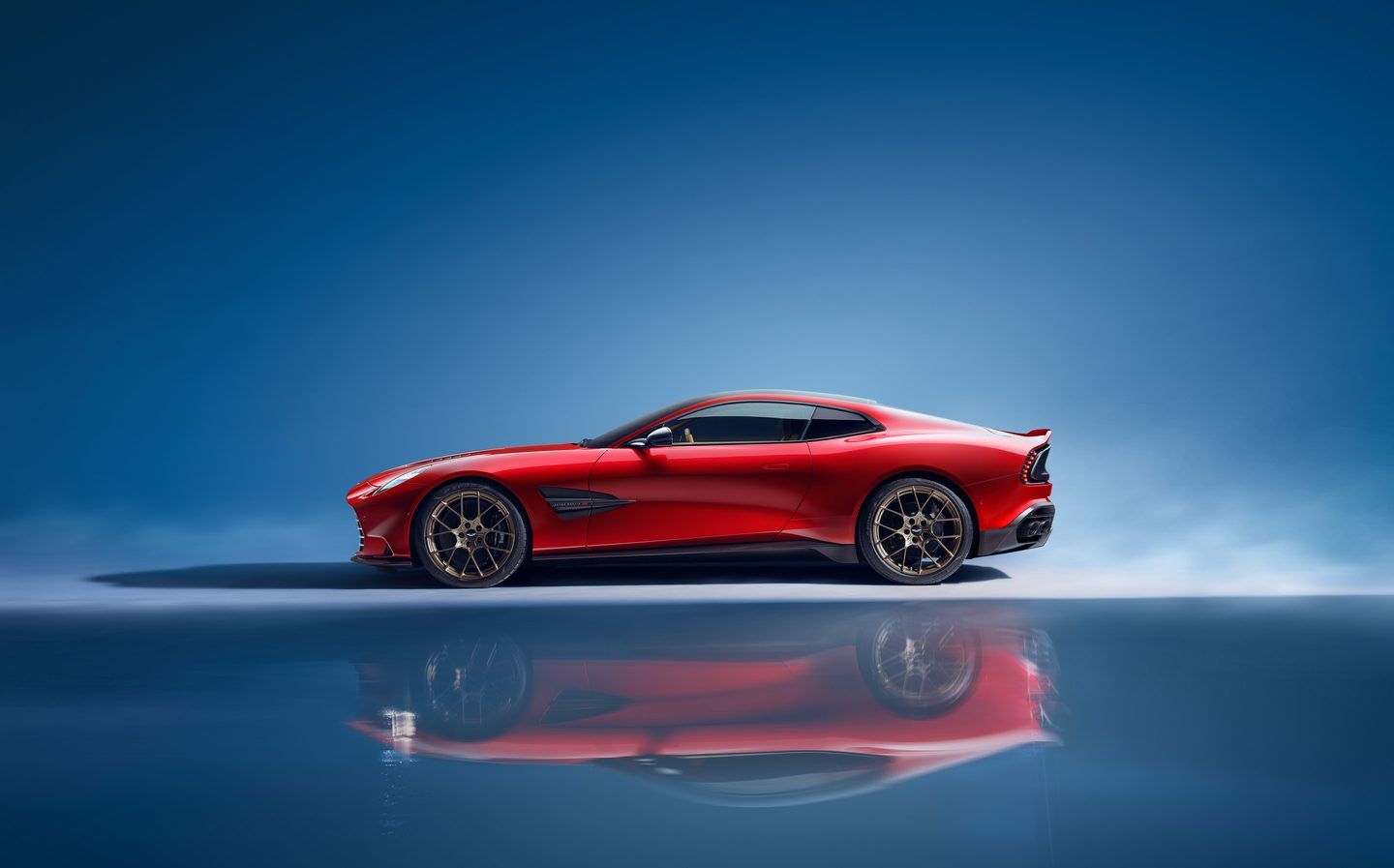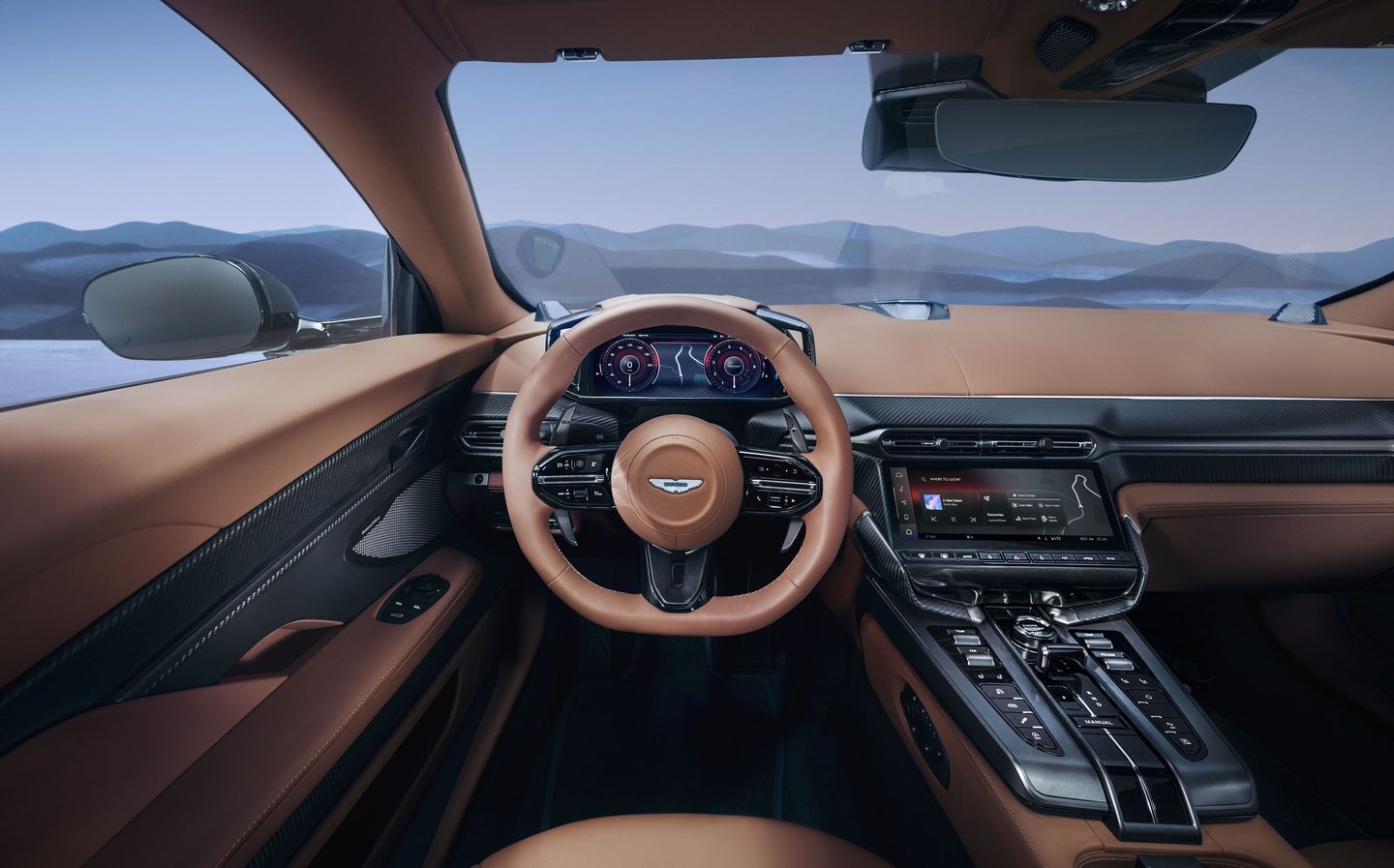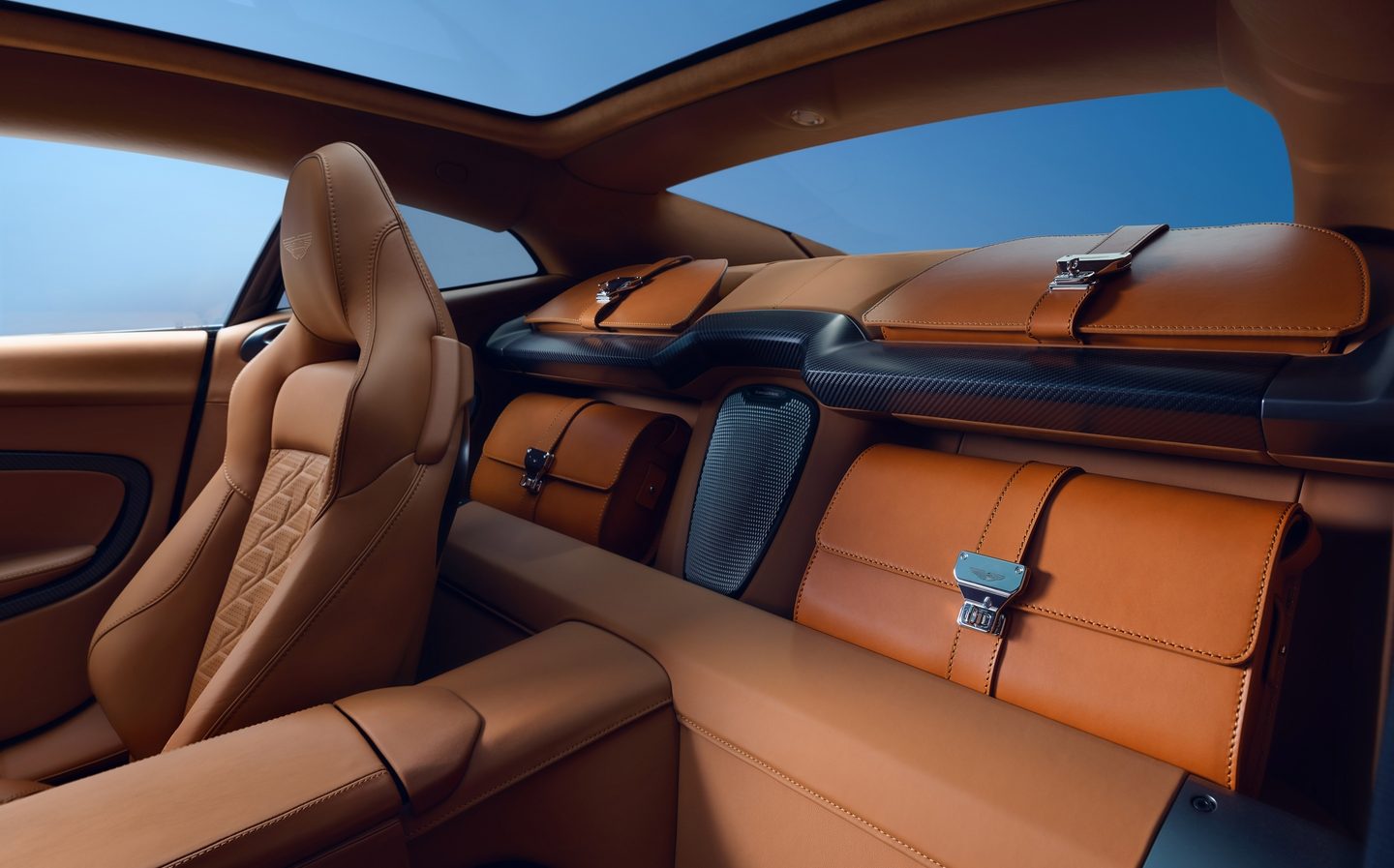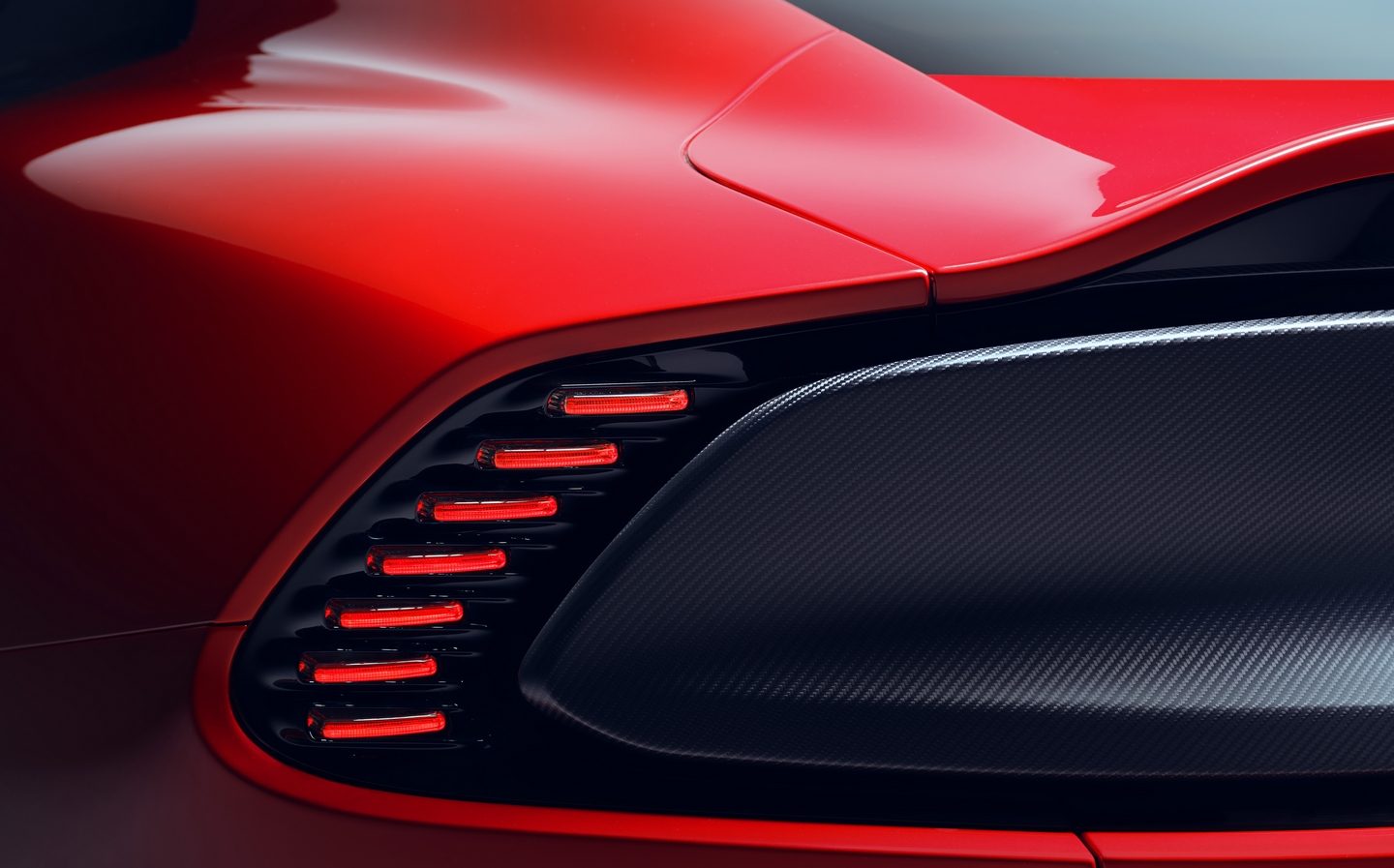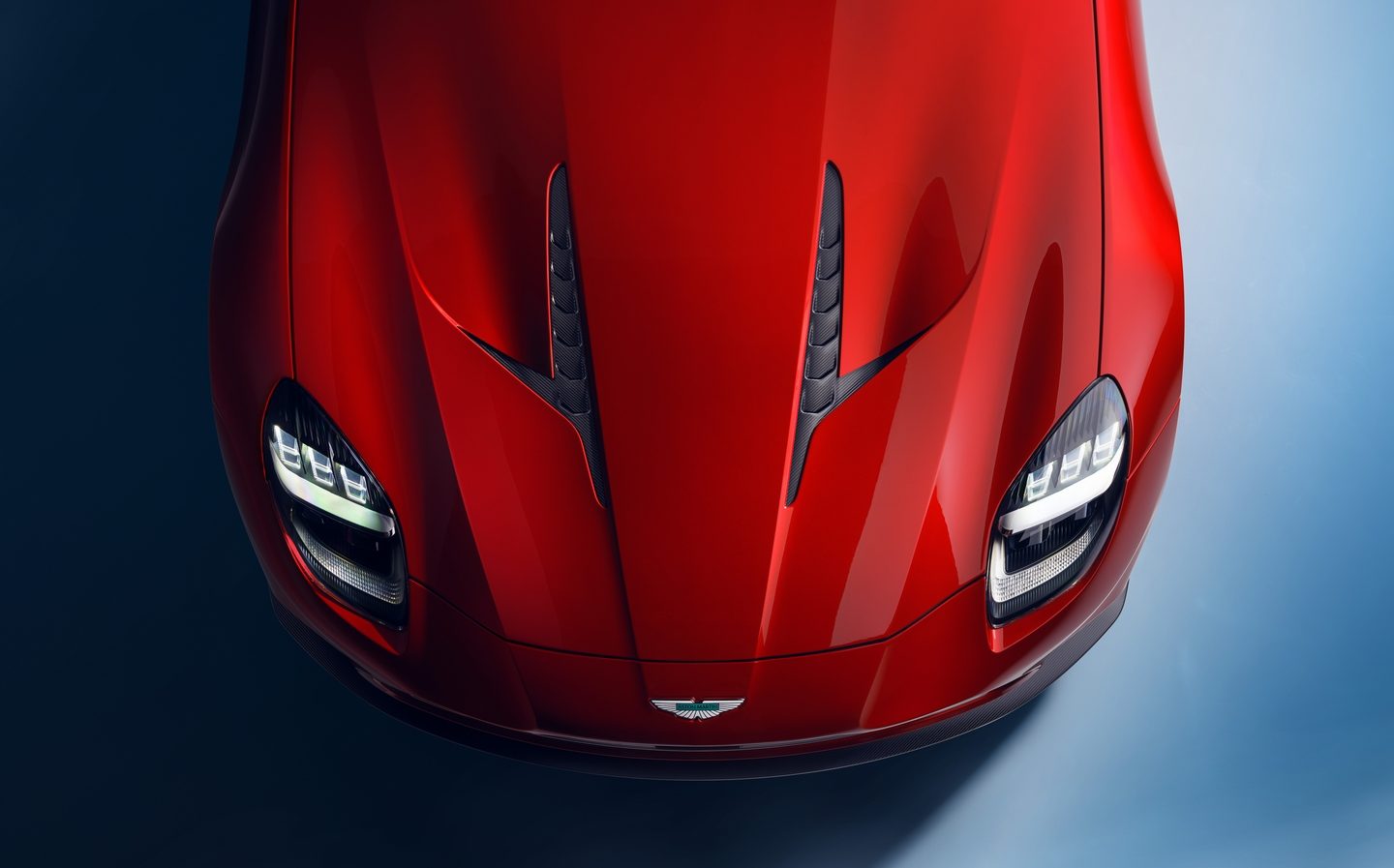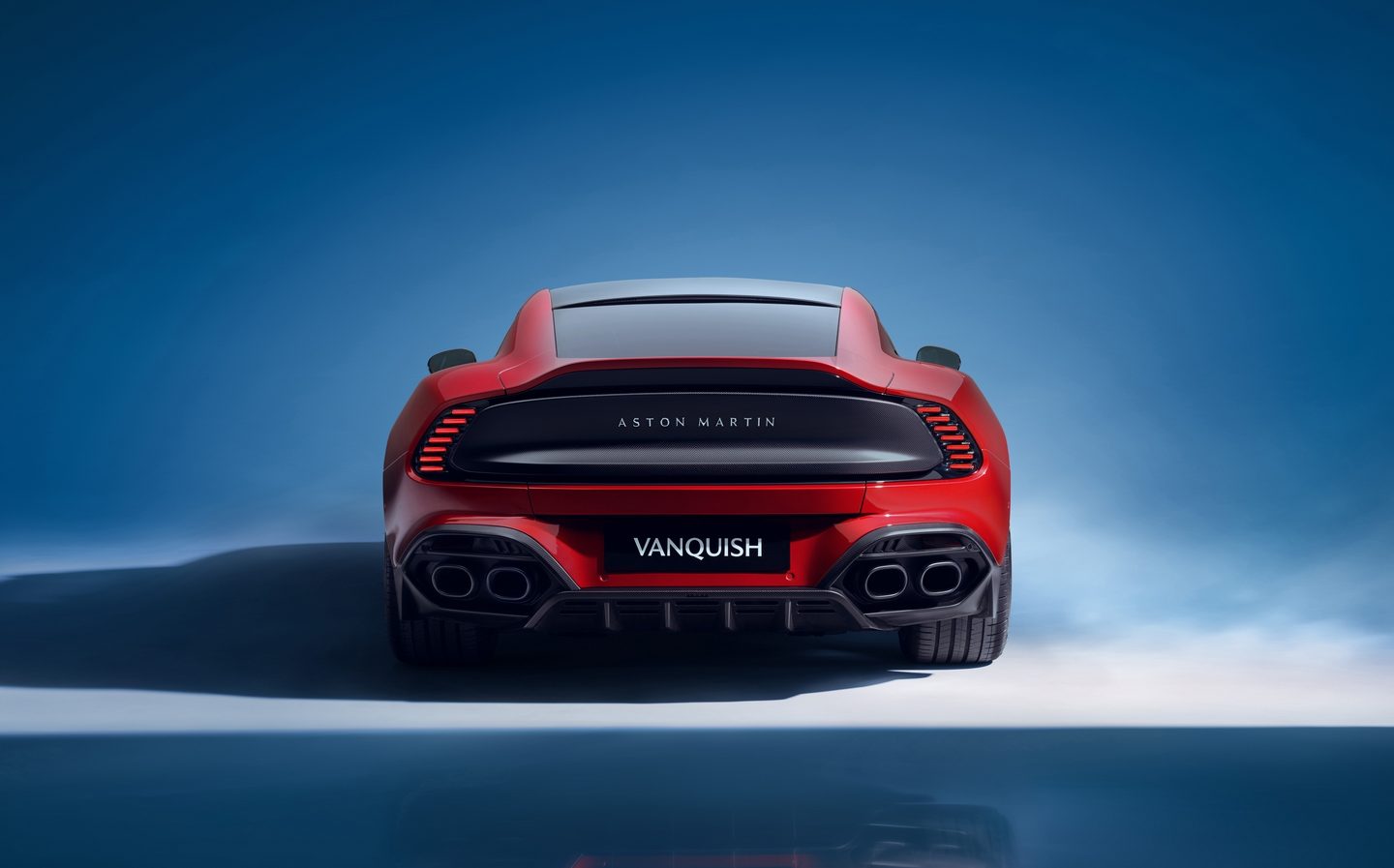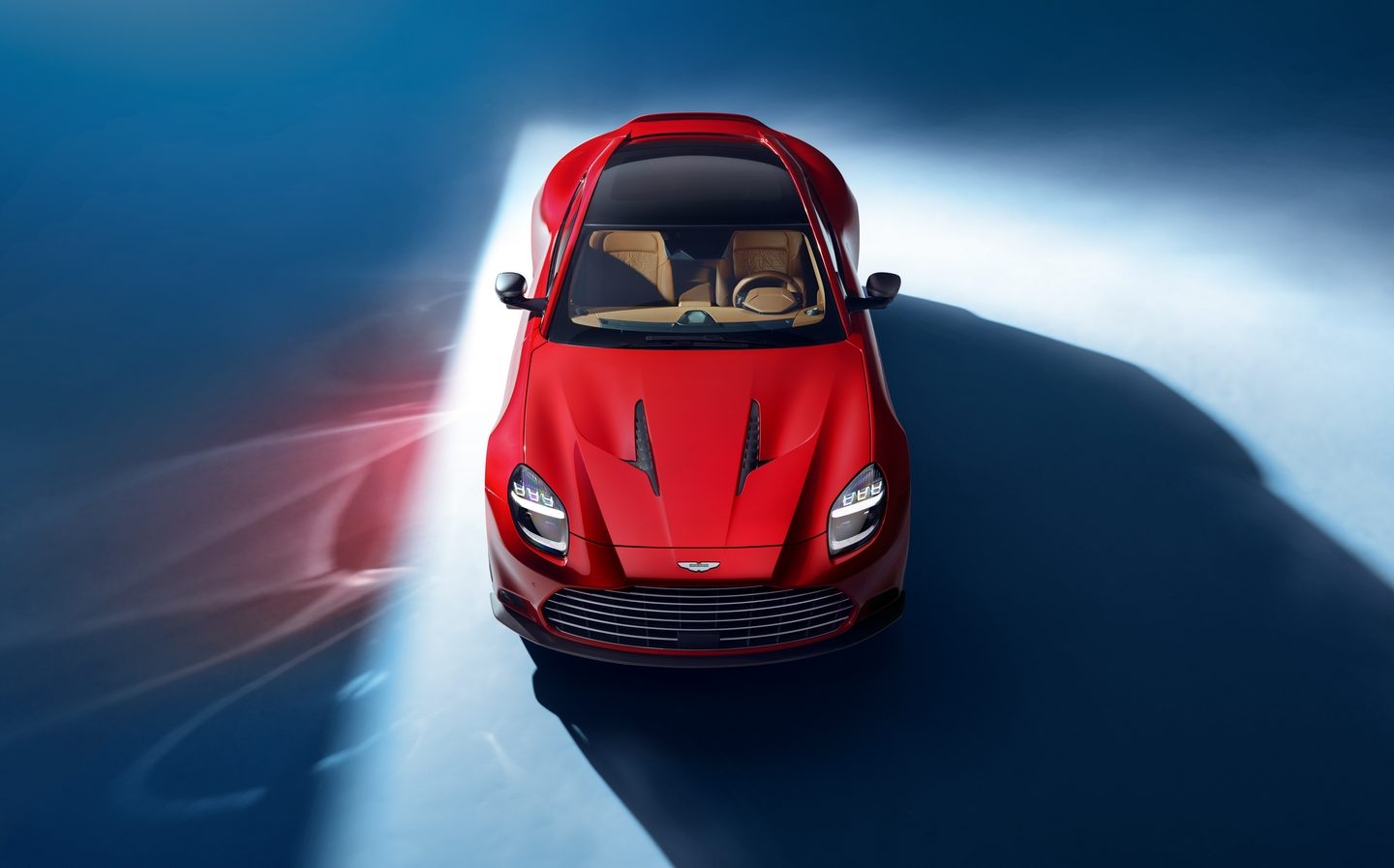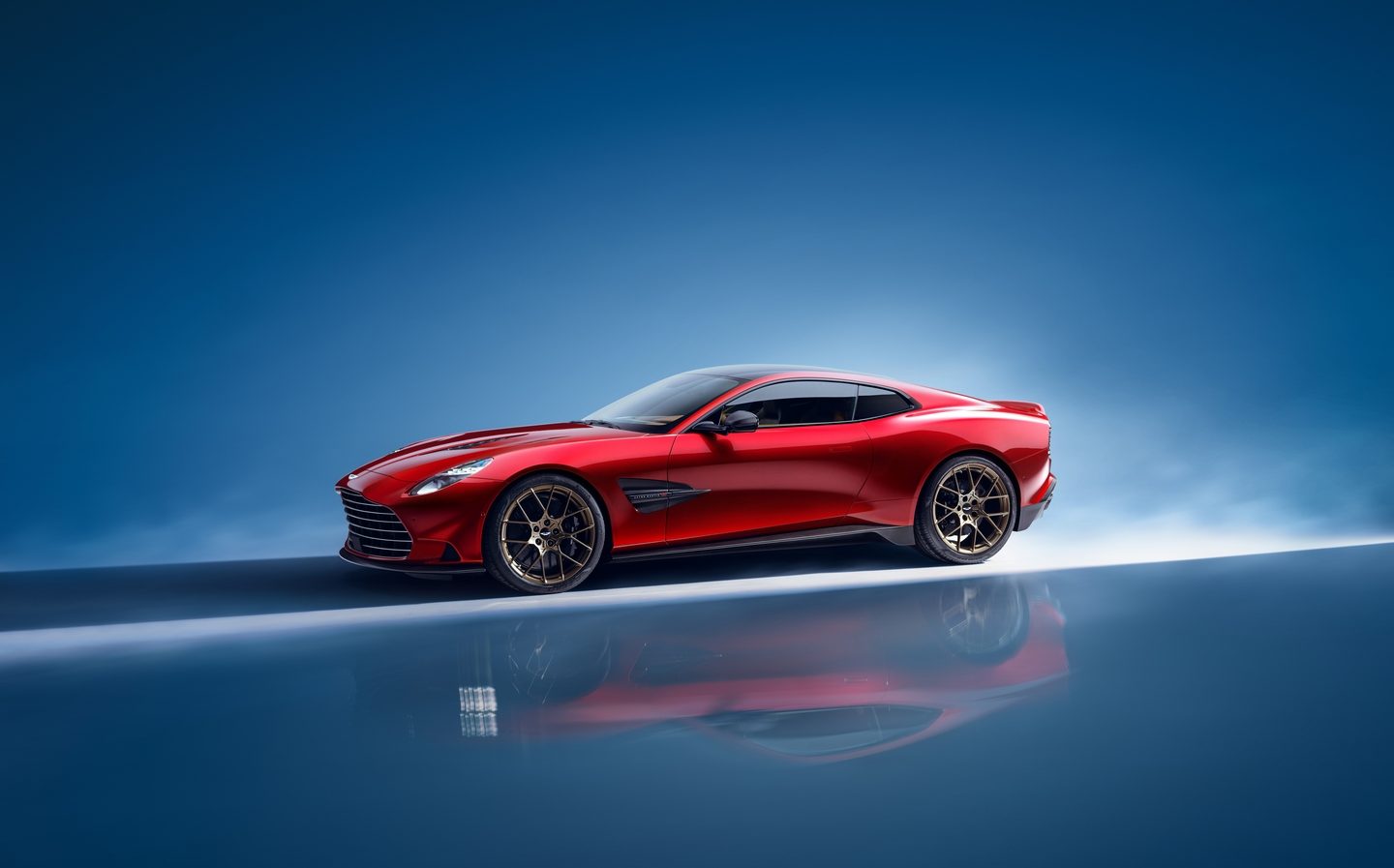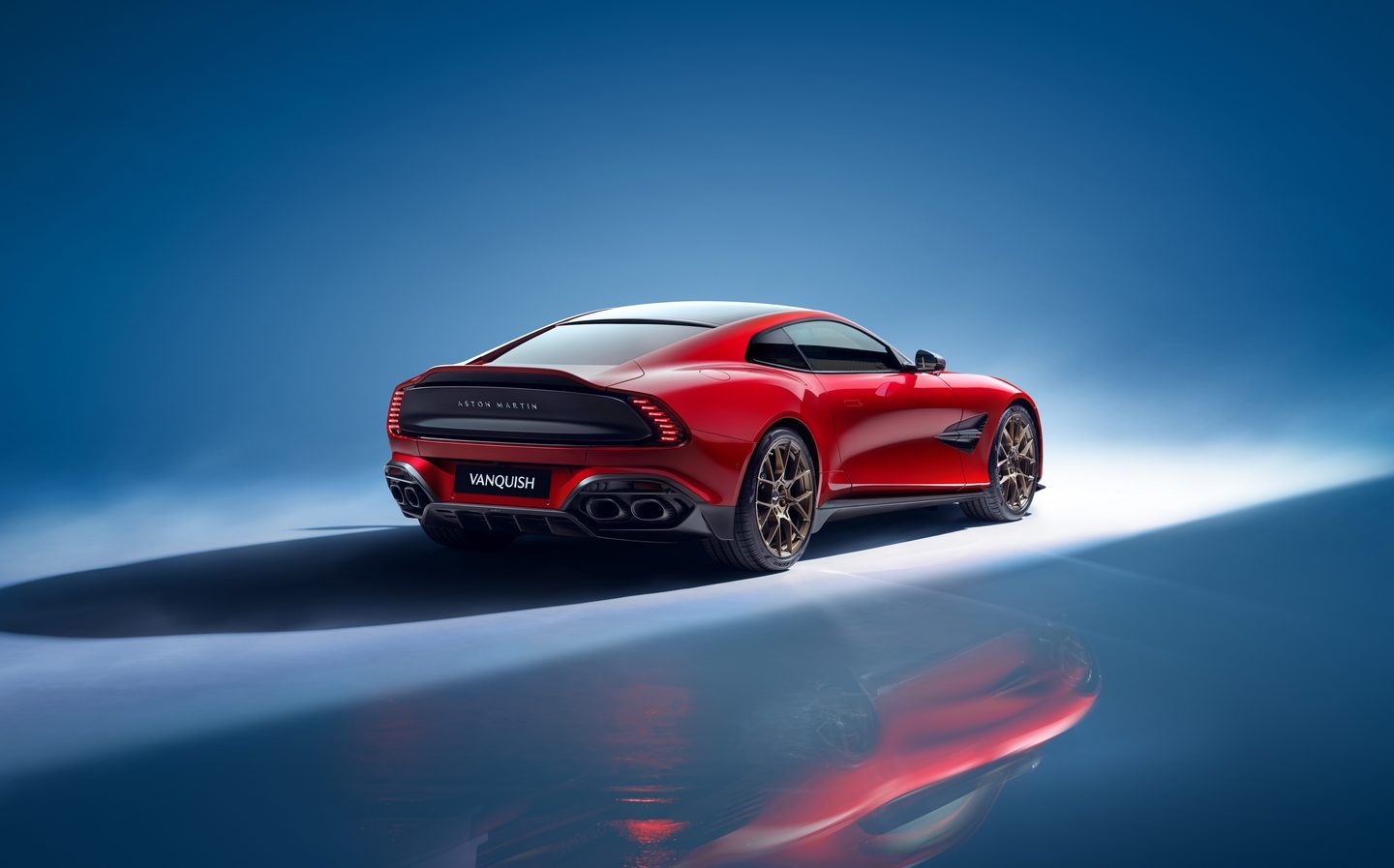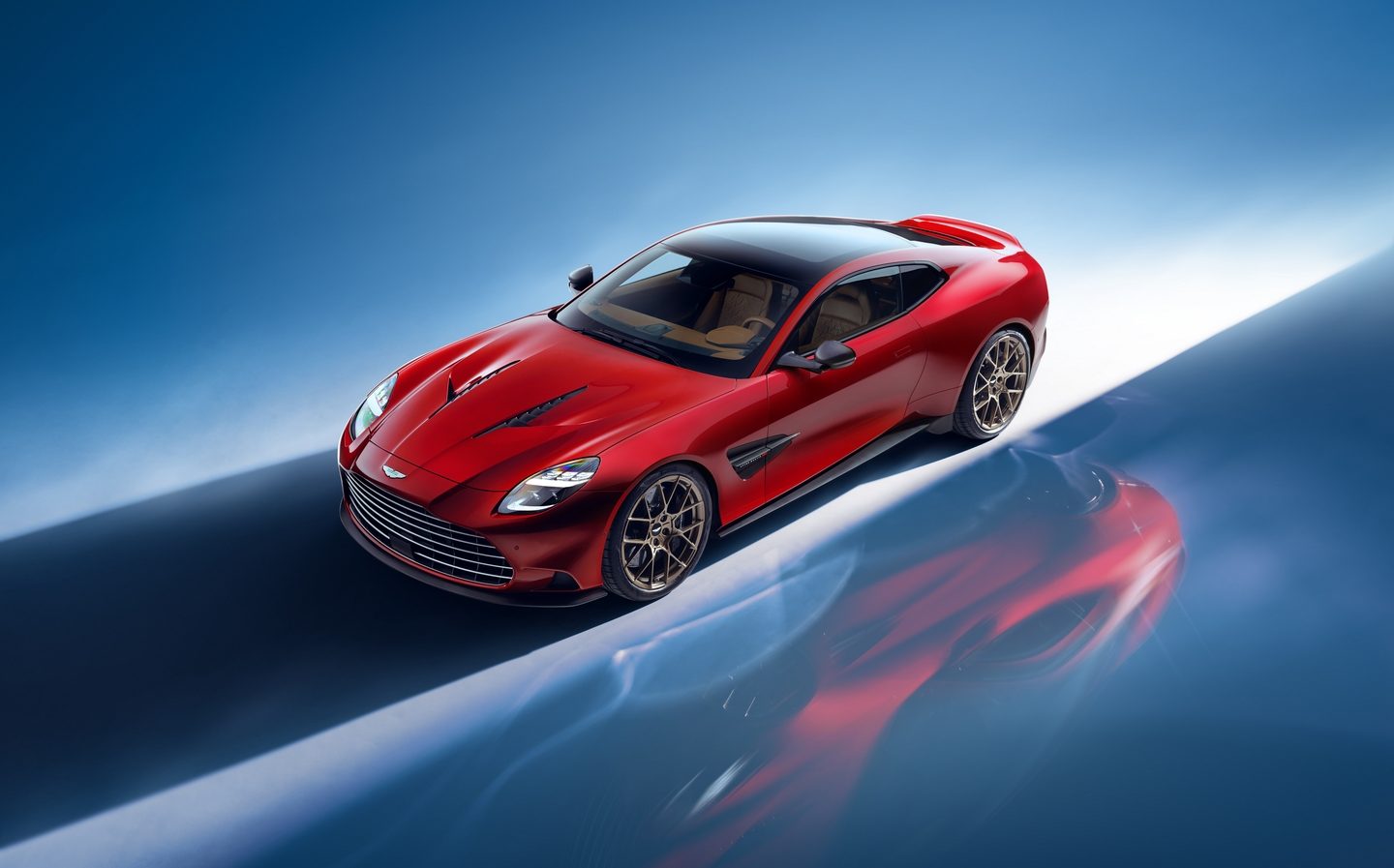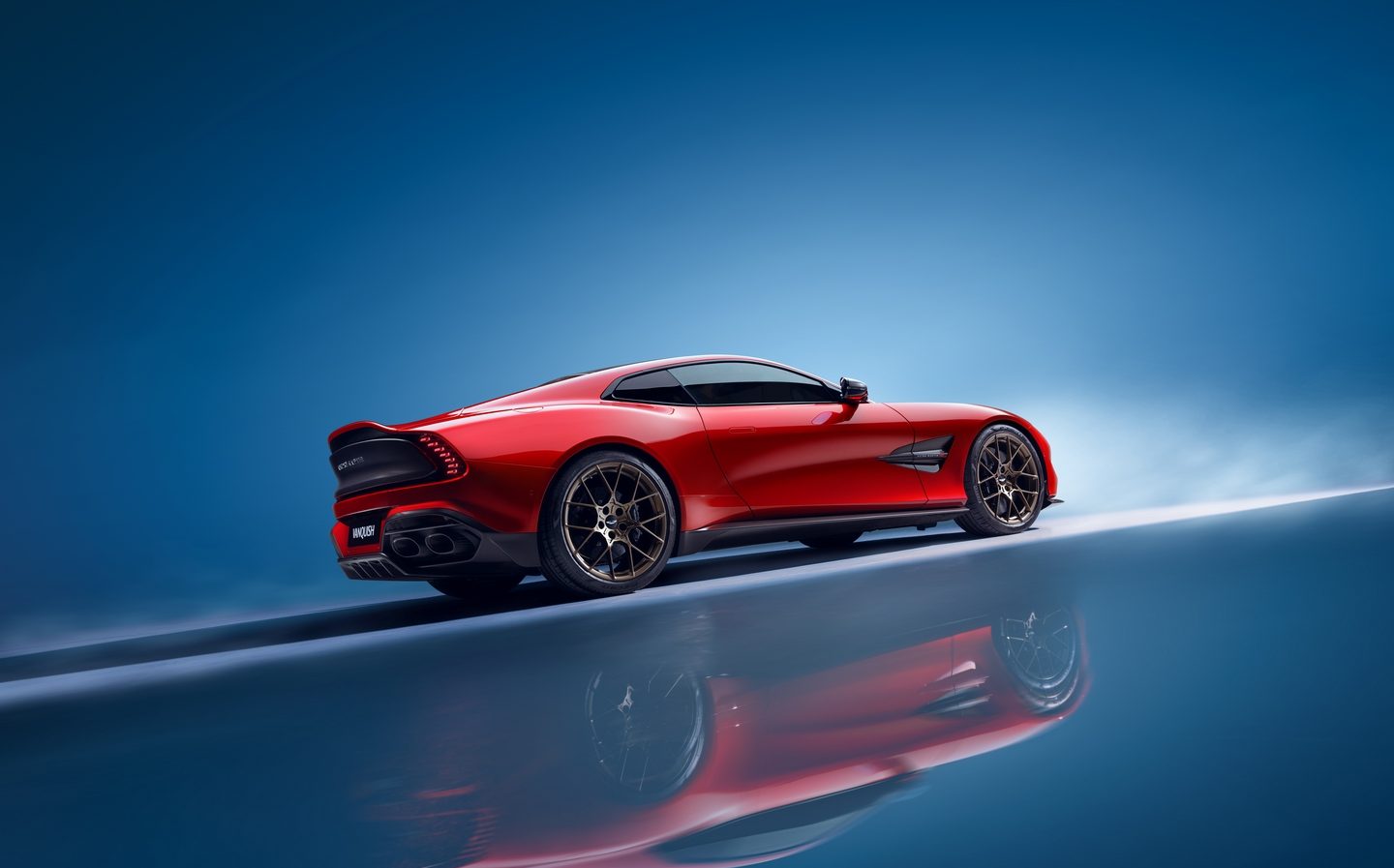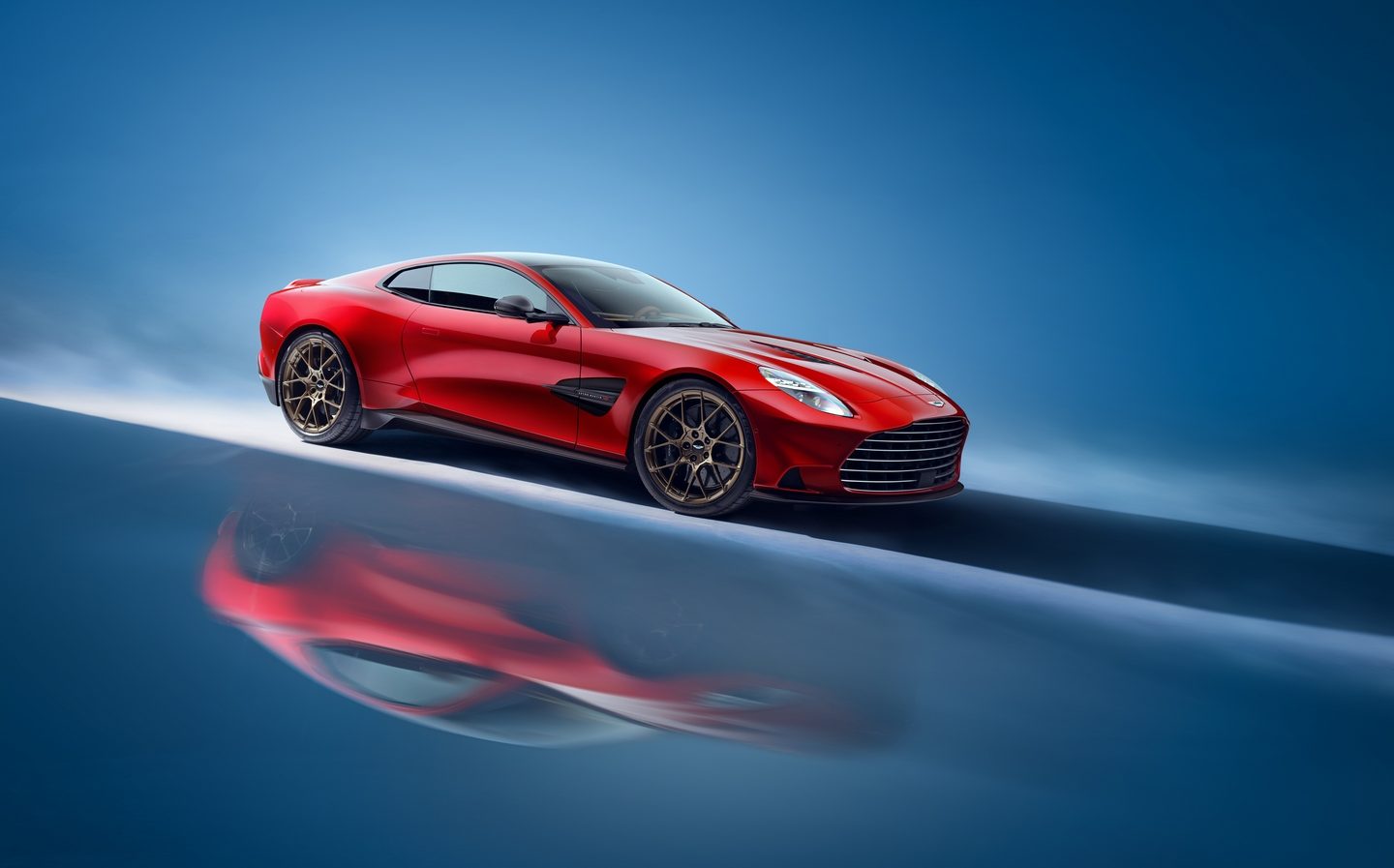Aston Martin brings Vanquish name back to the top of its sports car range, with 842bhp V12
Can certainly vanquish its rear tyres with ease
Aston Martin has confirmed the return of the Vanquish at the top of the British brand’s sports car line-up after more than five years away.
The Vanquish name first appeared in 2001, making headlines as the four-wheeled star of the James Bond film Die Another Day, before returning from 2012 to 2018.
Now, it’s back as the flagship grand tourer in Aston Martin’s range, belatedly replacing the DBS Superleggera.
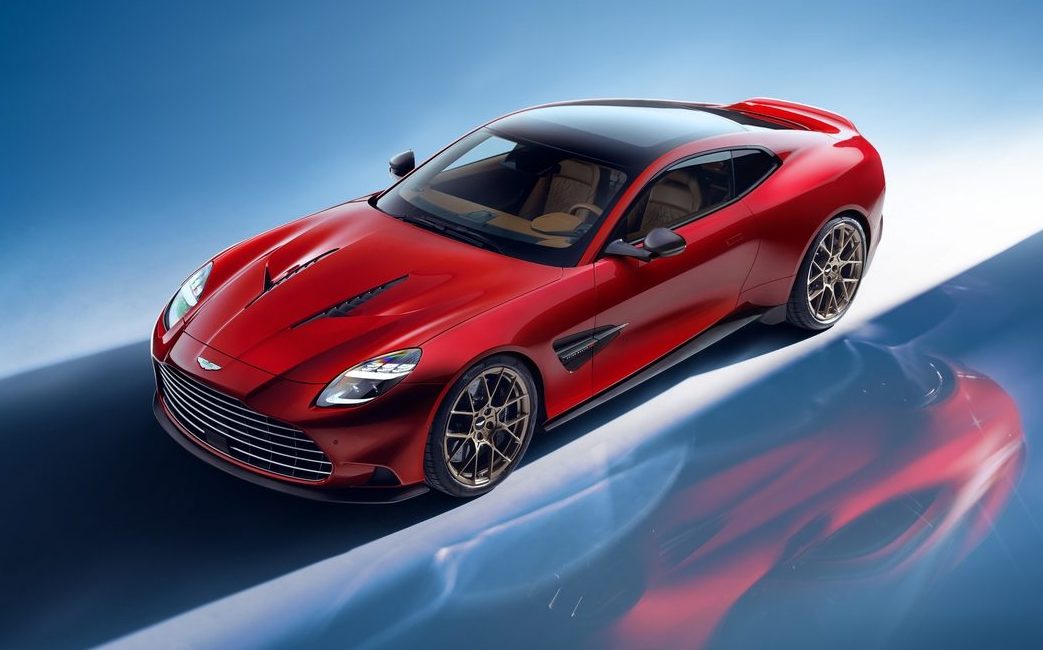
Like its predecessors, it will be powered by a V12 engine, and the new 5.2-litre petrol motor is twin turbocharged to produce an ample 824bhp — almost double that of the 2001 Vanquish.
What’s more, the new Vanquish is expected to cement its place at the top of the range with a bespoke chassis and heaps of fresh technology, as well as carbon-fibre bodywork and a luxurious interior.
“With the introduction of Vanquish we have crowned Aston Martin’s next-generation sports car portfolio,” said Aston Martin’s executive chairman, Lawrence Stroll. “A true halo model in every respect, Vanquish makes an emphatic statement. One that further delivers on our mission to create the most potent, most beautiful and most exciting cars in the ultra-luxury sports car market.
“As such, the Vanquish is the truest of Aston Martins. Immaculately designed and impeccably engineered it sets extraordinary new standards of performance, style and luxury for a new generation of connoisseurs.”
Form and function to the carbon bodywork
The car’s body is designed for more than just style, with F1-inspired thermos louvres in the bonnet and an upright tail inspired by the Aston Martin Project Cars that raced at Le Mans in the 1960s. But it still manages to be design-led, with a long bonnet, long wheelbase and a broad stance, which Aston says “expresses a fabulous sense of speed.”
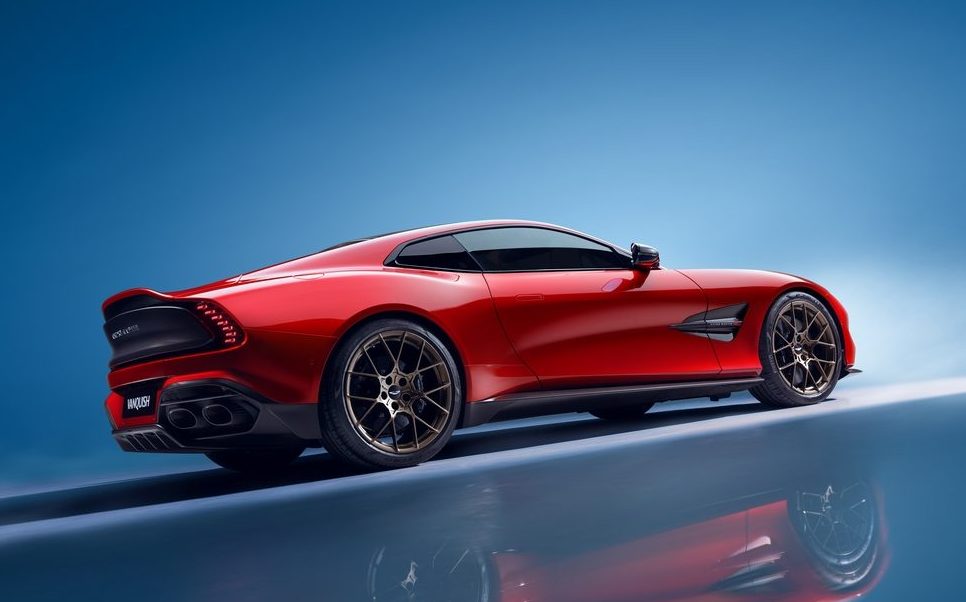
That comes courtesy of an all-new front bumper and grille design, with a larger aperture that offers greater cooling than that of the old DBS 770 Ultimate. It also has Matrix LED headlights designed with intricate details, while there’s a panoramic glass roof fitted as standard to all Vanquish models.
The glass roof covers an interior with just two seats and a bespoke layout, designed to be as luxurious as it is sporty. A low centre console, bold lines and a 10.25in touchscreen are joined by a similarly sized digital instrument display. The integrated system is designed to give drivers control of all the media, navigation and vehicle settings, as well as climate control, although it’s aided by solid metal rotary dials.
Physical controls making a comeback
Physical switchgear has also been retained for essential features such as gear selection, drive mode selection and heating, as well as override switches for the electronic stability systems, the sports exhaust and the parking sensors.
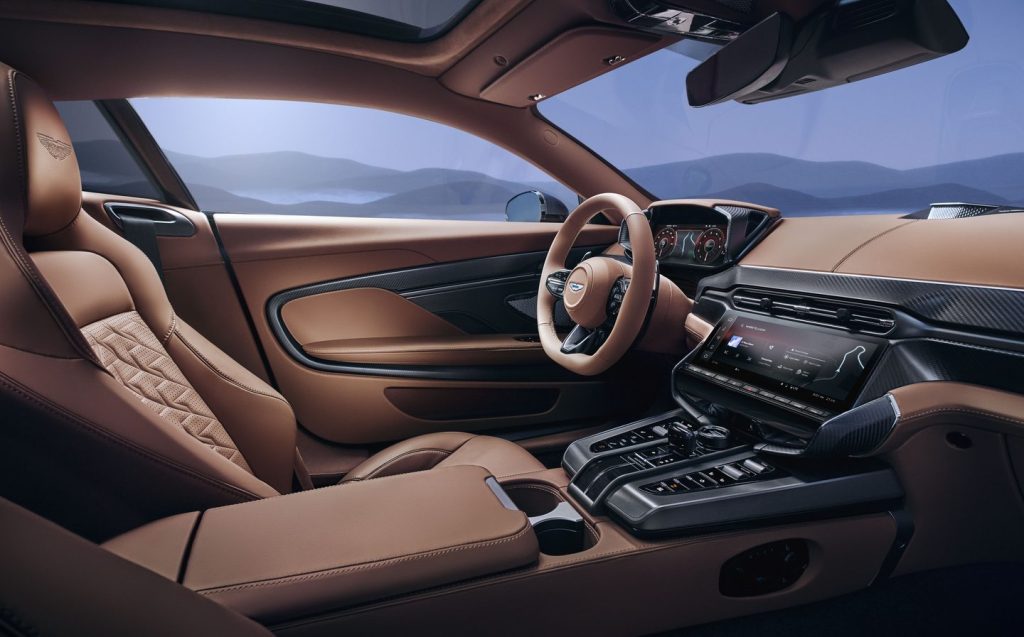
Naturally, the cabin is adorned with plenty of leather upholstery and luxurious appointments, designed to make the car ideal for long-distance journeys. “Sports Plus” seats come as standard, with a low driving position and a smart quilting pattern, while cars with a carbon roof option mirror the quilting in the roof lining. There’s a Bowers & Wilkins audio system as standard, too, complete with 15 speakers, while customers also get a choice of bespoke customisation options courtesy of Aston Martin’s Q personalisation service.
But the highlight is the 5.2-litre V12 powerplant, featuring a strengthened cylinder block and various other mechanical tweaks. New high-speed turbochargers help improve the performance and throttle response.
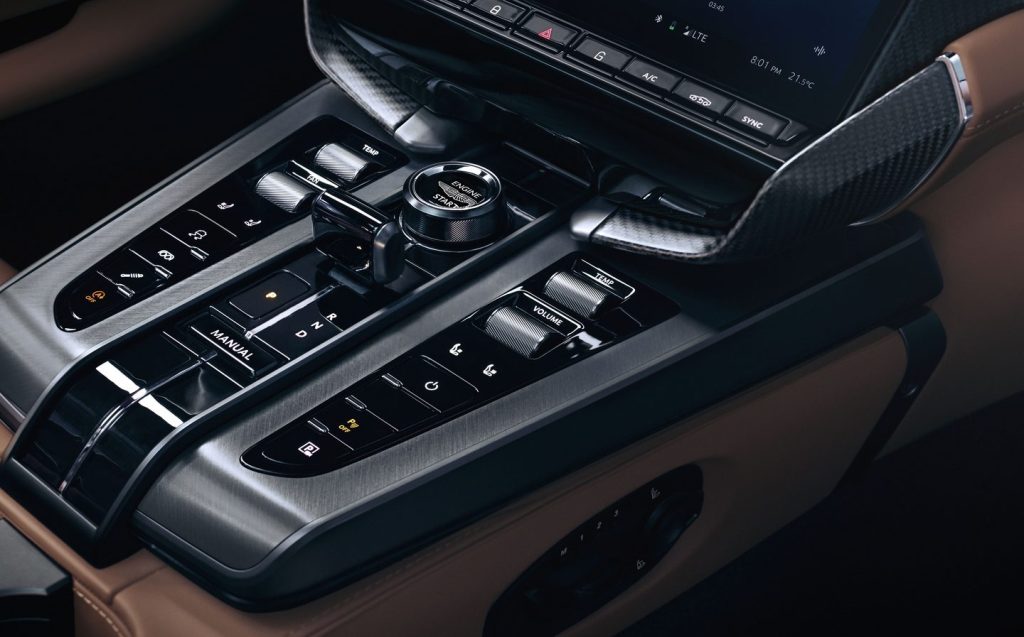
Aston has also fitted a new “Boost Reserve” function that’s designed for more responsiveness when overtaking. The system essentially increases the turbo pressure above what would normally be required at any given time, so the boost is available the moment the driver presses the accelerator.
Special oil and other technical upgrades
More minor upgrades include the use of oil supplied by Aston Martin’s F1 technical partner Valvoline, which has supplied a high-performance synthetic blend specifically for the Vanquish and it’s fed through a large oil cooler. And there’s a new electronic limited-slip differential at the rear, integrated into the stability system to manage wheel slip and maximise traction.
But while that may be a fixture designed for traction and therefore the exit of corners, Aston Martin says the Vanquish is built for speed, hitting 214mph flat out.
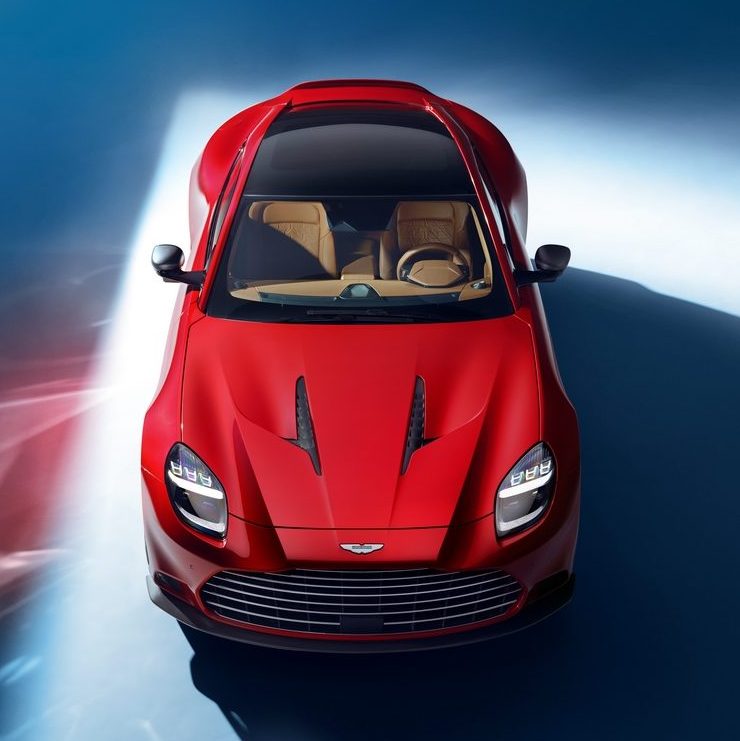
Aston has clearly put some provision for handling in there, though. The company has strengthened and stiffened the body in an effort to make sure the car is as agile and as communicative as possible, while latest-generation suspension technology from the DB12 has been fitted to improve refinement and control. The entire system is controlled through a choice of three driving modes designed to give the car a different character depending on your selection.
Three driving modes to choose from
GT mode is intended to provide a balance of characteristics on all roads, mixing comfort and handling, while the Sport and Sport+ settings get progressively sharper.
And to keep the might of the V12 in check, the car has a carbon-ceramic brake system with 410mm discs at the front and 360mm discs at the rear. Not only are those 27kg lighter than iron brakes would be, but they offer reduced brake fade at elevated temperatures, which is ideal for performance driving.
Those brakes are more than just a safety feature. Aston also uses them to brake wheels individually when cornering, improving stability and allowing the car to stick more tightly to the inside of the corner, while using more rear-biased braking to allow the driver to brake later.
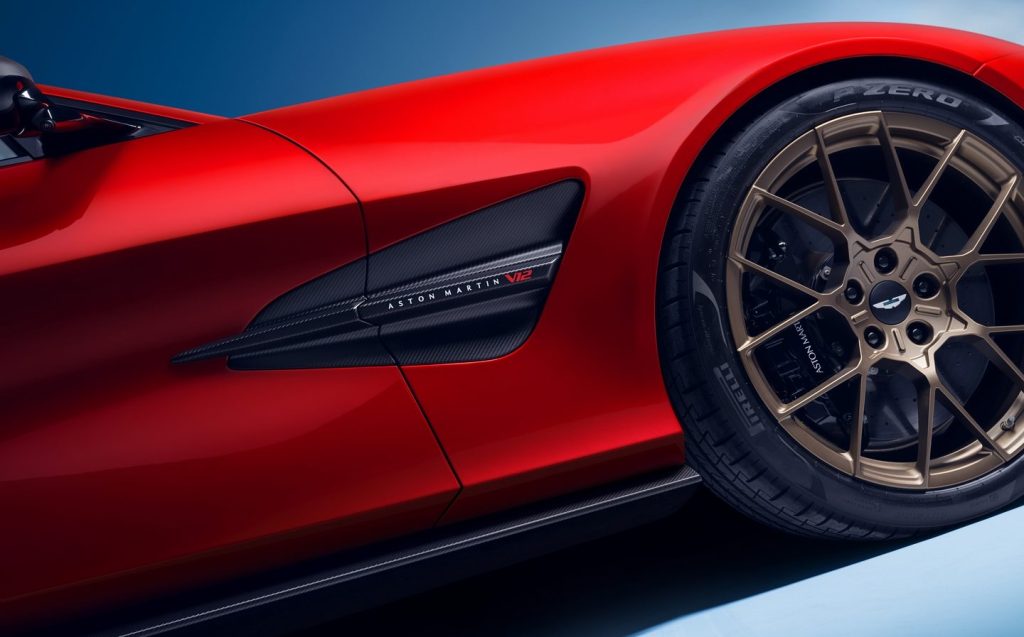
For a car that’s supposedly not built for racing, it’s a decidedly performance-orientated arrangement. As are the bespoke Pirelli summer and winter tyres available for the Vanquish.
“Vanquish brings another dimension to the revitalised Aston Martin range,” said Aston Martin’s director of vehicle performance, Simon Newton. “The new V12 engine is a larger-than-life character, with immense torque from just above idle combined with a truly ferocious top-end. It really is an extraordinary engine.
“This sense of boundless propulsion had to be matched by an equal level of control and finesse. The resulting blend of dynamic precision, epic performance and luxurious refinement is uniquely special, with a bandwidth that sets a new standard for the marque’s halo model and is worthy of the Vanquish name.”
The Vanquish is available to order now, with the first deliveries scheduled for the final quarter of 2024. However, Aston Martin hasn’t advertised the price (expect it to start near £400,000) and is limiting production to fewer than 1,000 production examples each year.
Related articles
- If you found news on the new Aston Martin Vanquish interesting, you might like to read what Will Dron had to say about the DB12.
- Also check out the Aston Martin Valiant, a 734bhp track-focused sports car developed for Fernando Alonso
- And don’t miss this video of the Aston Martin Valkyrie AMR-LMH hypercar on track ahead of Le Mans 2025
Latest articles
- Five best electric cars to buy in 2025
- Should I buy a diesel car in 2025?
- F1 2025 calendar and race reports: The new Formula One season as it happens
- Zeekr 7X AWD 2025 review: A fast, spacious and high tech premium SUV — but someone call the chassis chief
- Denza Z9GT 2025 review: Flawed but sleek 1,062bhp shooting brake from BYD’s luxury arm
- Extended test: 2024 Renault Scenic E-Tech review
- Best-selling cars 2025: The UK’s ten most popular models of the year so far
- Audi A6 Avant 2025 review: Trusty executive estate ticks expected boxes, and there’s still a diesel option
- Keir Starmer eases pressure on carmakers to sell EVs in response to ‘global economic headwinds’


